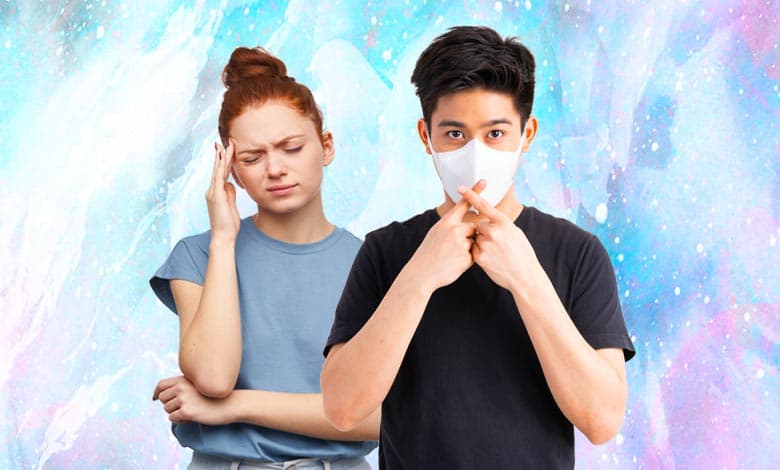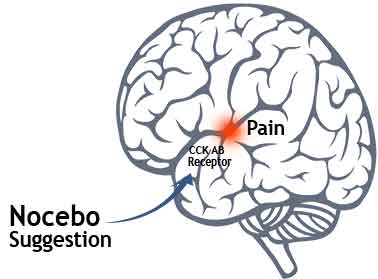
Greetings, intrepid thinkers and wellness warriors! Have you ever pondered the darker twin of the placebo effect, where negative expectations lead to adverse outcomes? Welcome to the enigmatic realm of the Nocebo Effect. In this intriguing exploration, we dive deep into how negative beliefs and anticipations can manifest real physical and psychological symptoms despite no harmful treatment being administered.
We are going to talk about the nocebo effect. It is the opposite of the placebo effect. Placebo has been a standard testing methodology, which means when you think something or expect something will be good for you, the brain and the body manifest that. The nocebo is the opposite of it. If we believe something will be bad for us, the brain can create that, too.
The nocebo effect is the dark side of the placebo effect. We have a negative outcome because we believe we’ll have a negative result. So one of the ethical concerns for doctors is that they’re likely to experience a side effect that can have a nocebo effect if you say to someone. People expect a negative outcome, so they share the negative result.
So, tighten your seatbelts and prepare for a journey into the mind’s shadowy corners, where we’ll uncover how our thoughts can not only heal but also harm. Let’s shed light on the nocebo effect and its powerful influence on our health and well-being. Ready to explore the power of belief in a whole new light? Let’s begin!
What Is Nocebo Effect?
The nocebo effect is when psychological or psychosomatic factors such as negative treatment expectations or prognosis produce a detrimental impact on health. The nocebo effect comes from the Latin meaning “I will harm.” The power of the mind makes you feel worse and ill.
There is no medical reason to feel sick before chemotherapy, but most people believe it. If you think you’ll get sick, you’re more likely to get sick, and that’s a very general term. People are actively researching this; we haven’t done this for all illnesses.
If there are possible side effects, you’re all warned about the side effects. But 20% of people will develop side effects, and sometimes these side effects will be severe. They cause you to drop out of the clinical trial. The Department of Health in New York calls it a mass psychogenic illness. What is the cause of the nocebo effect? Changes at the biochemical level affect patients’ outcomes at the brain and hormonal levels.
You will react poorly if you believe taking a particular medicine will be wrong. You’re going to get every one of the side effects that are listed on the insert. Our mindset and belief system about whether something will be good or bad for us makes all the difference.
When you expect something to happen, your brain can create it out of thin air. If you expect something to be wrong for you, the brain can do that. It is an expectation of predictive coding that the brain can create, which you desire.
How Does The Nocebo Effect Work?
Researchers believe it may be explained by a substance in the body that sends signals along the nerves. For example, if a person is anxious, they experience more pain than a calm person. This effect can be seen in the brain. Imaging studies have shown that pain is more intense when people expect it than when they do not. It is linked to changes in specific brain regions.

If a patient does not believe a treatment will work, it will harm their health. When working with placebos, if people believe their treatment will work, they have a positive attitude. So positive health benefits can occur.
Nocebo showcases the negative effects of thinking or anticipation. It’s what’s at work when sugar pills cause negative side effects. For example, in one medical trial of a drug for fibromyalgia syndrome marked by widespread chronic pain, over 10% of volunteers given a placebo dropped out of the study because of the side effects like nausea and dizziness that they’ve been warned about.
Even though the drug was inert, the mere suggestion that they might feel side effects caused it. The nocebo effect can also occur in patients taking actual drugs. If a doctor lists possible side effects, a patient is more experienced with them. Half of the patients were told the medicine might cause erectile dysfunction during trials for a drug to reduce enlarged prostates. The other half were not informed. Only 15% of the uninformed men reported the side effects.
While he was whopping, 44% of the men who were told had trouble in the bedroom. Ultimately, we’re still unsure how placebo and nocebo responses work. The mechanisms vary depending on the circumstances. But Ted Kaptchuk, director of Harvard University’s program in placebo studies and the therapeutic encounter, suspects the bottom line might be pretty straightforward.
Natural drugs are essential, but compassionate care and trusting your caregiver are critical. Kaptchuk believes the placebo effect has more to do with the attention, warmth, eye contact, and empathy a physician gives than believing that a pill is natural. In that case, placebos are all about the ritual of medical care and the trust we put into it.
Experiment of Nocebo effect
The first experiment looks at the placebo effect and the nocebo effect together. We were looking at patients who were experiencing arm pain. We assigned these participants to two different groups. We gave them a pill in one group and said it would help their arm pain. In the second group, we did acupuncture, but it was not about putting the needles in any specific place. We put the needles anywhere, and they say that that will help with the arm pain. What happened to both groups?
They felt better after receiving the treatment. But also both groups experienced these nocebo effects. They weren’t even told about them. So they weren’t told that there would be any side effects. However, the participants from both groups said they felt sluggish from receiving these treatments but that they were not treatments. So, you could argue that taking a sugar pill could be good for homeopathic medicine because it doesn’t harm patients but could have a positive placebo effect.
However, saying this could negatively affect you if you don’t contextualize that correctly and are homeopathic. Then, you also could be doing something quite unethical. Patients will experience those negative effects as well on the other side. When it comes to doctors treating patients, doctors need to communicate side effects and effectiveness. Doctors believe that if patients believe the treatment’s effectiveness, they will benefit more from that treatment.
We’ve navigated the complex pathways by which our minds can conjure discomfort and distress from mere negative expectations, illustrating the profound impact of beliefs on our physical state. It’s a potent reminder of the mind’s dual ability to both heal and harm based solely on perception. We hope this exploration has not only expanded your understanding but also inspired a greater awareness of the power of thoughts and expectations.
Thank you for venturing with us into this lesser-known territory of human psychology and health. Until our next enlightening adventure, may you wield the power of your mind wisely, nurturing positive thoughts and beliefs for a healthier, happier life. Stay curious, and remember, the mind’s influence knows no bounds.
More Articles:
What Is Placebo Effect With Working, Psychology
What is Flynn effect On IQ Score
References:
Barber, Theodore Xenophon. “Death by suggestion. A critical note”. Psychosomatic Medicine.
Barker, Scared to Death: An Examination of Fear, its Cause and Effects. London: Frederick Muller.
Barsky, Arthur J.; Saintfort, R.; “Nonspecific Medication Side Effects and the Nocebo Phenomenon.”
Cannon, Walter. “‘Voodoo’ Death.” American Anthropologist.
Charcot, J.M. “The Faith-Cure.” The New Review.

